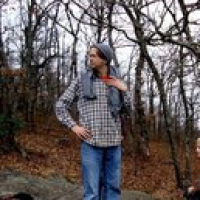The Ends of Modernization: Nicaragua and the United States in the Cold War Era
The Ends of Modernization studies the relations between Nicaragua and the United States in the crucial years during and after the Cold War. David Johnson Lee charts the transformation of the ideals of modernization, national autonomy, and planned development as they gave way to human rights protection, neoliberalism, and sustainability. Using archival material, newspapers, literature, and interviews with historical actors in countries across Latin America, the United States, and Europe, Lee demonstrates how conflict between the United States and Nicaragua shaped larger international development policy and transformed the Cold War.
David Johnson Lee is a professor at Temple University where he also received his Ph.D. He is the author of The Ends of Modernization: Nicaragua and the United States in the Cold War (Cornell University Press, 2021) as well as many other reviews and articles.
The Washington History Seminar is co-chaired by Eric Arnesen (George Washington University) and Christian Ostermann (Woodrow Wilson Center) and is organized jointly by the American Historical Association and the Woodrow Wilson Center's History and Public Policy Program. It meets weekly during the academic year. The seminar thanks its anonymous individual donors and institutional partner (the George Washington University History Department) for their continued support.
Speaker

Panelists


Hosted By

History and Public Policy Program
A leader in making key foreign policy records accessible and fostering informed scholarship, analysis, and discussion on international affairs, past and present. Read more
